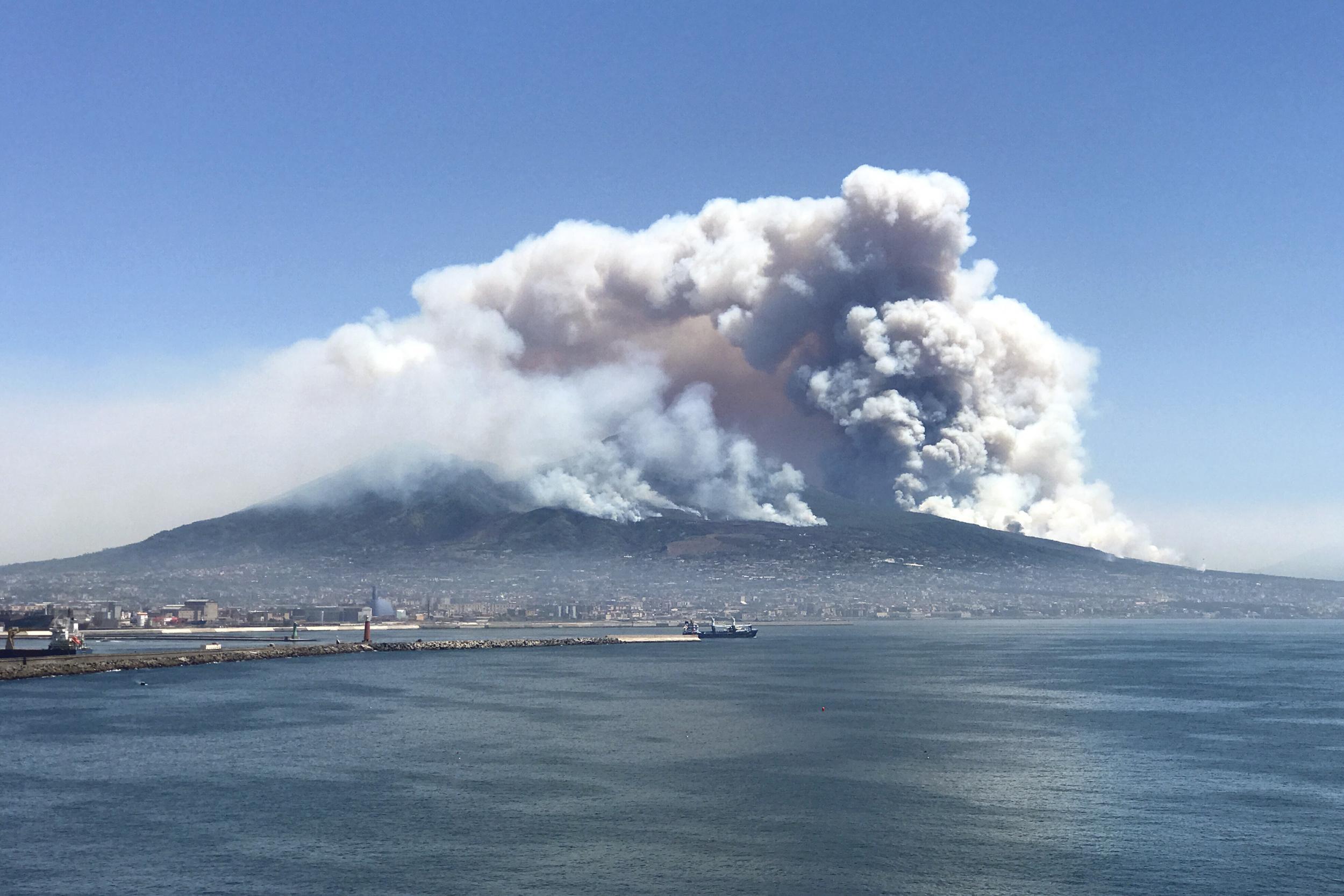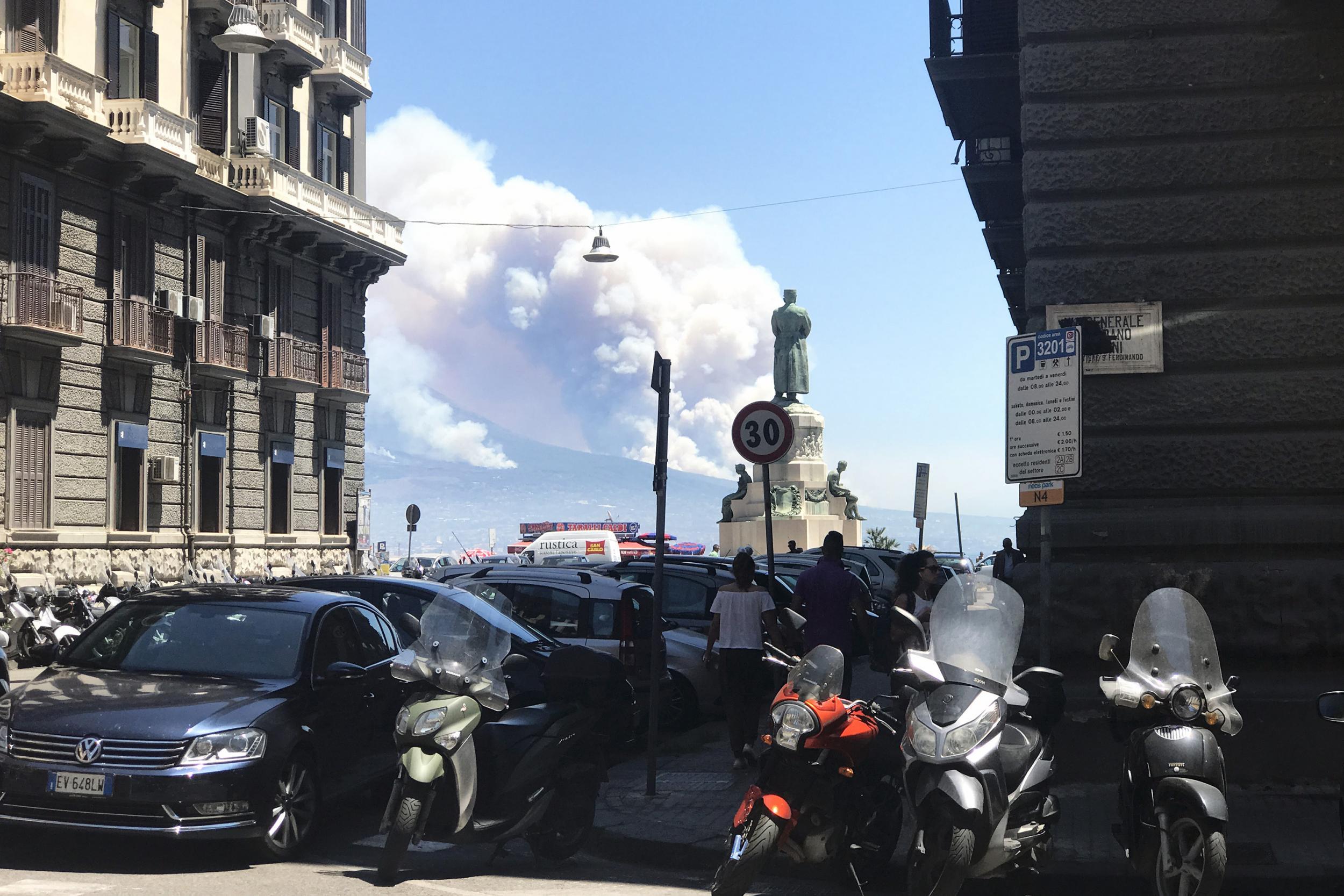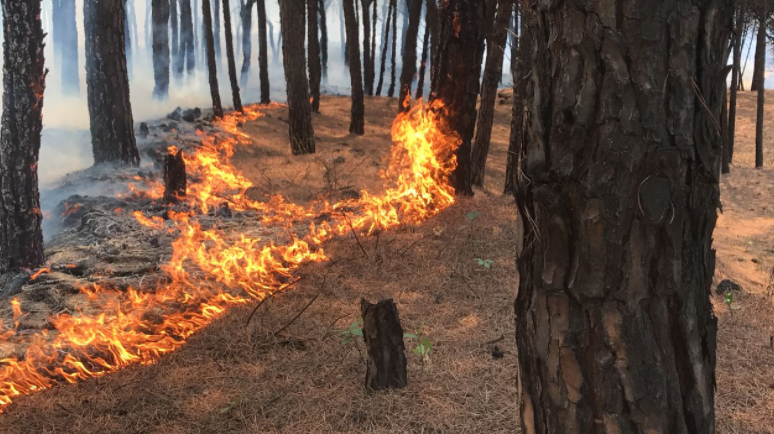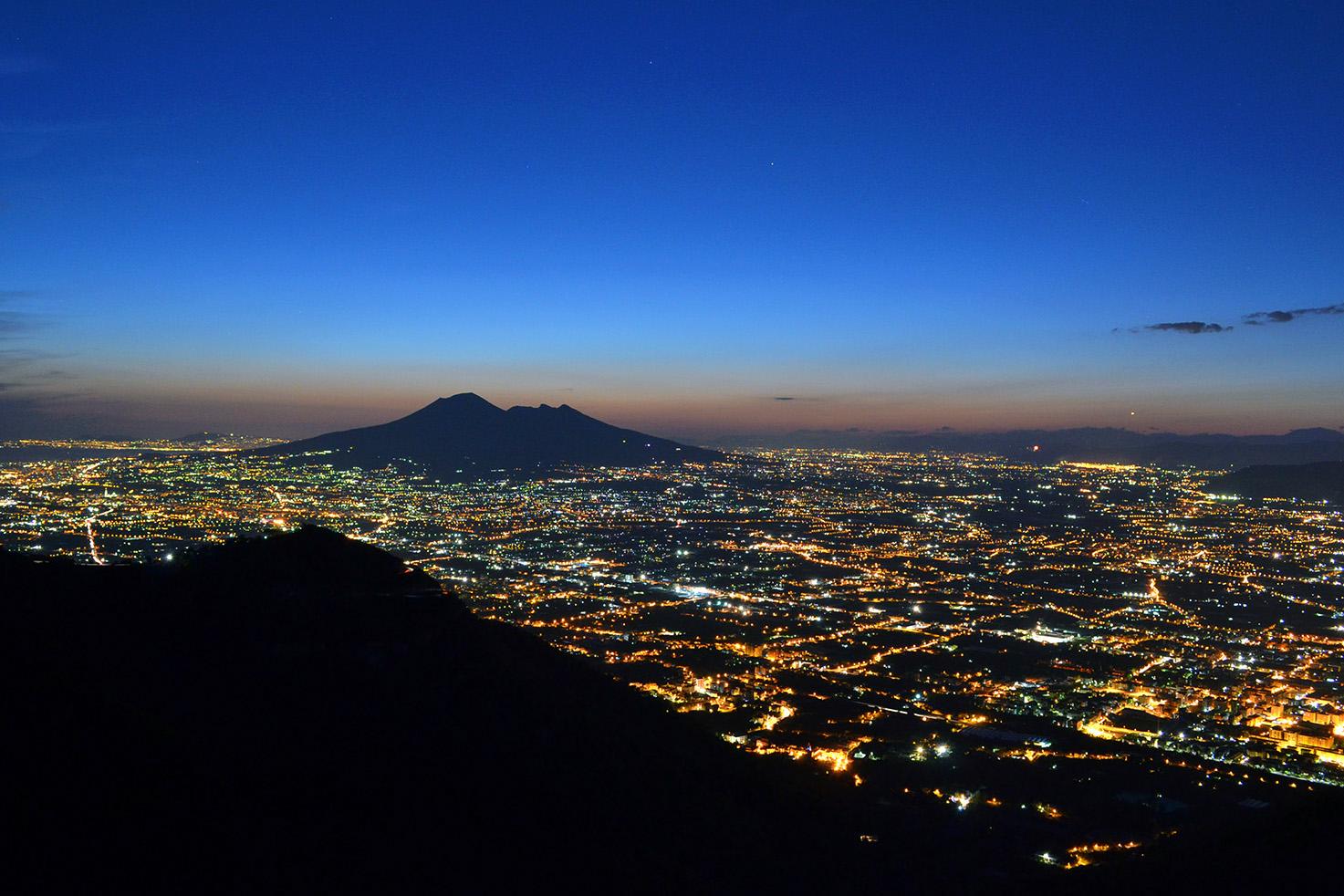Don't let the Mount Vesuvius fire put you off visiting Naples
Images of Mount Vesuvius on fire have brought to mind all the negative connotations Naples has long endured. But don’t let that put you off visiting, says local Livia Hengel

With thick plumes of smoke obscuring the crater of Mount Vesuvius and pitching ash onto the villages below, the fires ravaging Naples’ notorious volcano last week were a sombre reminder of the vulnerability of Italy’s third largest city.
Climactic conditions have been ripe for fires – Italy is facing a heatwave, and there’s been no significant rainfall in Naples since February. The nearby Amalfi Coast has also been hit with a series of brush fires, but the image of Mount Vesuvius in flames understandably captured rather more attention.
Thanks to efforts from the authorities, the fires have now been put out. But not only did they draw inevitable comparisons to the deadly volcanic eruption in 79AD that wiped out Pompeii and Herculaneum; they reminded the world of Naples’s darker side – and a reputation that the city has long been trying to discard. Because it’s believed they were started deliberately.
Naples has long been a much maligned city, painted by those in other parts of Italy – as well as abroad – as a lawless place that’s best avoided. Even the name conjures up images of pickpockets, muggings, piles of uncollected rubbish and mafia killings. Tourists flying into Naples International Airport tend to head straight to the Amalfi Coast or the islands rather than venture into town; Sorrento is often the preferred choice for the stepping-off point to Pompeii. Naples has art, culture, world-famous food and immense charm – it should be overrun by visitors. The fact that it isn't is down to that reputation.
In recent years, the city has made huge strides in changing its image. Luigi de Magistris, who’s been mayor since 2011, has been widely applauded for his efforts to turn the city around. Naples’ reputation abroad has become much more appealing – even Elena Ferrante’s books have provided a new perspective to the city.
But now the spectre of arson has reminded the world of its less salubrious sides.

Neapolitans have a complicated relationship with Mount Vesuvius. The volcano is an ominous symbol of the city, and a stark reminder of the hardships and rebirths it has had to endure over the centuries.
Seeing it in flames last week has caused anguish in Naples, and underscored the city’s complicated history with crime and corruption. Both police and mafia experts like writer Roberto Saviano trace the fires back to criminal activity, laying the blame firmly at the door of the Camorra crime syndicate.
“People forget that Mount Vesuvius is an enormous landfill used by the Camorra to dispose of waste,” Saviano explained in a video posted to his Facebook page. “By burning the ground now, they’re able to make more space for future disposals.”
Saviano has also cited an Italian law forbidding construction for 15 years on previously burnt land – a handy way to bolster the Camorra’s control of the city’s waste disposal. Others speculate that with local unemployment at 28 per cent, a disaster will generate more work.
The possible reasons are varied but each come back to a lack of authority, disorder and criminality – all aspects with which Naples is so often associated. The fires on the Amalfi Coast are also thought to have been started deliberately – yet it’s Naples that the world’s spotlight has come to rest on.

What does that mean for tourists? Luckily, not a huge amount. Walk along the Lungomare (waterfront) at the moment, and you’ll get a prime view of the volcano – no longer shrouded in smoke, as of last weekend, thanks to relentless action by Canadair aircrafts which helped to extinguish the flames.
In fact, there’s never been a better time to visit. In recent years, Naples has been edging towards a sort of cultural renaissance. The energy in the city right now is palpable, thanks to de Magistris’ leadership – and there’s a push towards making things more visitor-friendly. In the past several years, Naples has been the focal point of sporting events including America's Cup, the Giro d'Italia and the Davis Cup. Since 2012, the waterfront has been a pedestrian-only zone, inviting families to walk and bike along the Bay of Naples – with its views that have captivated people for millennia. And the city was recently awarded a €100m (£877m) grant by the European Union to modernise its historic centre – one that is already recognised as a Unesco World Heritage Site.
Young Neapolitans are starting up social urban projects with the aim of stimulating the local economy. La Paranza social cooperative now offers tours of Naples’ catacombs, and runs other activities in Rione Sanità (historically one of the more maligned neighbourhoods), while Made In Cloister has turned 15th century cloisters near the train station into a booming space for art and culture that hosts pop-up installations, concerts and other events.

And people are noticing. Tourism is on the rise, with 12 per cent more people visiting the city than at this time last year, contributing €10bn (£8.7bn) to the local economy – a 50 per cent increase on 2016.
Co-existing with the Camorra is an unfortunate fact of life for Neapolitans, and Mount Vesuvius is a constant reminder of the city’s proximity to disaster, but Naples is resilient and has come so far in recent years. With much to love about the city – ineffable spirit, immense cultural riches and world-renowned cuisine, for starters – visitors will likely find more reasons to return, rather than stay away.
Join our commenting forum
Join thought-provoking conversations, follow other Independent readers and see their replies
Comments